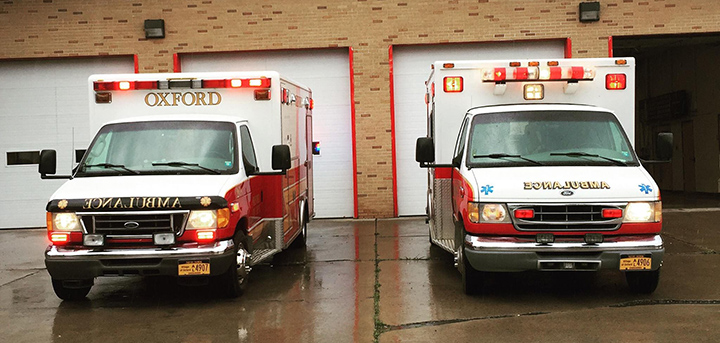Memo From The City Of Norwich On Finances
Published:
November 6th, 2015
The following is a memo written by Norwich City Chamberlain John Zielinski directed to member of the Norwich Common Council prior to Wednesday’s public hearing regarding the proposed property tax cap override for the 2016 budget year. Norwich City offices shared the document with The Evening Sun for publication:
Work on the 2016 budget is continuing. We have a long way to go to reduce expenditures to an affordable level.
We need a balanced budget in 2016 as our available fund balance is precariously low after multiple years of deficit spending, projected to be only $37,129 or 0.4 percent of budgeted expenditures, at the end of 2015 based on the latest projections.
Accepted financial criteria suggest a fund balance equal to 10 percent of budgeted expenditures, or $ 845,690.
You may recall that our fiscal stress score is caused by two factors: a low fund balance and multiple years of deficit spending. That trend must be reversed or our credit rating will be severely impacted.
A 1 percent increase in the property tax rate brings in an additional $30,659 in real estate taxes. A 1 percent increase in the property tax rate will cost the average homeowner with a home assessed at $55,000 an additional $11.84 per year; 10 percent an additional $118.40, etc.
The 2015 budget planned a deficit of $ 351,791. To reduce that deficit to zero (i.e. balanced), taxes would have needed to be raised 11.5 percent. The bottom line is that the 2015 budget needed an 18 percent tax increase in order to be balanced.
The fact is that there is no fund balance left to fund a deficit budget. A balanced budget is now a necessity rather than an option. The choice is simple but harsh: raise taxes or cut services.
Two fireman are retiring in 2016 and their retirement incentive / accrued time off will cost the City $150,353. A tax increase of 4.9 percent will be necessary to pay for these benefits.
A policeman is retiring in 2016 and his retirement incentive / accrued time off will cost the City $ 63,833. A tax increase of 2.1 percent will be necessary to pay for his benefits.
A 2 percent increase in salaries and wages from 2015 budget levels will cost approximately $77,000, requiring a tax increase of 2.5 percent.
Some facts about health insurance:
• Health insurance is expected to cost the City $1,572,750 in 2016 (an increase of $261,143 over the 2015 budget and an increase of $490,087 over 2011).
• The Affordable Care Act places four separate taxes on health care plans such as ours. These taxes added $80,300 to the cost of our health care plan for the August 1, 2015 - July 31, 2016 plan year.
• Retiree Health Insurance will cost the City $422,258 in 2016.
A history of our fund balance taken from our audited financial statements since December 31, 2008 follows:
• December 31, 2008 Fund Balance: $1,574,710
2009 Operating Surplus: $71,862
• December 31, 2009 Fund Balance: $1,646,572
2010 Operating Deficit: ($370,640)
• December 31, 2010 Fund Balance: $1,275,932
2011 Operating Surplus: ($104,244)
• December 31, 2011 Fund Balance: $1,380,176
2012 Operating Deficit: ($213,947)
• December 31, 2012 Fund Balance: $1,166,229
2013 Operating Deficit: ($257,118)
• December 31, 2013 Fund Balance: $909,111
2014 Operating Deficit: ($499,217)
• December 31, 2014 Fund Balance: $409,894
2015 Operating Deficit (estimated): ($372,766)
• December 31, 2015 Fund Balance (estimated): $37,129
Comments








